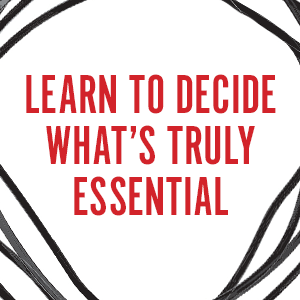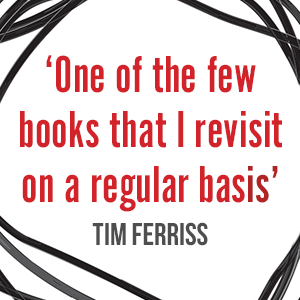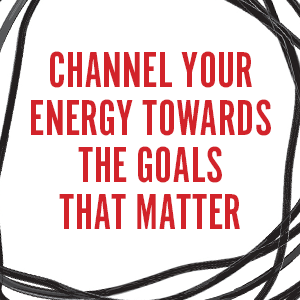Customer Services
Copyright © 2025 Desertcart Holdings Limited



Full description not available





| Best Sellers Rank | #858,473 in Books ( See Top 100 in Books ) #3 in Time Management (Books) #8 in Business Decision Making #102 in Systems & Planning |
| Customer Reviews | 4.6 4.6 out of 5 stars (20,689) |
| Dimensions | 4.96 x 0.67 x 7.8 inches |
| ISBN-10 | 0753558696 |
| ISBN-13 | 978-0753558690 |
| Item Weight | 7.5 ounces |
| Language | English |
| Print length | 304 pages |
| Publication date | January 7, 2021 |
| Publisher | Virgin Books |
J**T
Useful advice for our hectic times
Our world seems to be moving faster and faster. We are bombarded by endless information and rapidly multiplying demands on our time and attention. Many people struggle to cope with their bottomless to-do lists and their ever-expanding to-read piles. As a consequence, many people feel scattered or even burned out. In “Essentialism”, Grey McKeown provides an antidote by arguing that we should focus on the essential. Thereby, we can concentrate our efforts on the things that truly matter and ignore all of the noise. He goes into practical advice and illustrates the approach of the essentialist to many of life’s quandaries. The book is highly readable because of the many case examples that will resonate with many readers. The chapters are also kept short and to the point. That makes it easy to absorb the main message. However, I thought that book boiled down to a few central points that can be summarised in a page or two. However, this might be because I read quite a few books on similar topics and was, therefore, familiar with the content of some of the chapters. For instance, Deep Work by Cal Newport and Make Time by Jake Knapp and John Zeratsky cover similar ground. Altogether, I think the book is an excellent choice for anyone who feels on the edge of burn-out and wants to take some time to reflect on a better approach to work and life.
W**G
Good sensible ideas - but would you CHOOSE to put them to practice?
Single most memorable passage:"Charlie O. Simms taught a Journalism 101 class at Beverly Hills High School. He started... by explaining the concept of a "lead". He explained that a lead contains the why, what , when, and who of the piece. It covers the ESSENTIAL(my emphasis) information. Then he gave them their first assignment: write a lead to a story.Simms began by presenting the facts of the story: "Kenneth L. Peters, the principal of Beverly Hills High School, announced today that the entire high school faculty will travel to Sacramento next Thursday for a colloquium in new teaching methods. Among the speakers will be anthropologist Margaret Mead, college president Dr. Robert Maynard Hutchins, and California governor Edmund 'Pa' Brown"The students hammered away on their manual typewriters trying to keep up with the teacher's peace. Then they handed in their rapidly written leads. Each attempted to summarise the who, what where, and why as succinctly as possible: "Margaret Mead, Maynard Hutchins, and Governor Brown will address the faculty on ..."; "Next Thursday, the high school faculty will ..." Simms reviewed the students' leads and put them aside.He then informed them that they were all wrong. The lead to the story, he said, was "There will be no school on Thursday.""In that instant," Nora Ephron(of [Sleepless in Seattle] and [When Harry met Sally]) recalled, "I realised that journalism was not just about regurgitating the facts but about figuring out the POINT. It wasn't enough to know the who, what, when, and where; you had to understand what it MEANT. And why it MATTERED." Ephron added, "He taught me something that works just as well in life as it does in journalism." " p73-74Disclaimer - I have not read a whole lot of management/self-improvement books, so I cannot say that I am a very good judge of the genre. There is a danger that this book is actually littered with tired old cliches that I hadn't noticed, in which case I shouldn't have bothered you with this. That said -Self-improvement books are a strange breed - myself included, you so often see people who read one and then complain that the book only wrote about the really obvious things. In the same sense, however, homo sapiens are a strange breed who never quite do what they know to be the obviously good things for themselves. grin emoticon Enter, then, the study of management - the study on "coordination of the efforts of people to accomplish goals and objectives by using available resources efficiently and effectively". Sounds like self-improvement on a larger scale, but with the added benefit of providing results from well-designed research.The author is a management consultant with an MBA degree from Stanford. Perhaps naturally, the book often reads like a business strategy book with plenty of case studies from the corporate world, but as Ephron says, those methods can easily be used for life in general. The book's message can be neatly summed up in one sentence - "Figure out what is really important and essential in your life, and eliminate everything else to focus your efforts and achieve maximum output/contribution to society". The rest of the book is just filled up by how to achieve that goal.While 'the rest of the book' is coherently structured with a logical, well-suited flow and sensible, well-researched suggestions backed up by sociology/psychology research findings(these days it seems impossible to read something that doesn't quote [Flow] by Mihaly Csikszentmihalyi and [Thinking Fast and Slow] by Daniel Kahneman, although probably due to my reading interests. Perhaps I should just give up and add them to the reading list), some solutions that the author suggests will just sound implausible. One example is the importance of being able to say no to your boss so that you can concentrate on something more essential. Obviously, I cannot imagine myself doing so to my bosses, consultant surgeons. For some other solutions, I thought they can only be done when one is reasonably financially secure, so that he/she can take the risk/hit by cutting out/declining all the non-essential activities that regularly plague our lives. However, (as my stock-phrase goes) if we are to look at the moon instead of the finger pointing at the moon...The part that really inspires me in this book is its single-minded pursuit and the determination for what constitutes the most important thing in our lives; what makes our lives meaningful for us(as illustrated in the above anecdote), and what will ultimately enable us to be useful to the rest of the humanity. Sure, it may not always be obvious to all of us, and the method of elimination the book suggests may not guarantee to lead us to an answer. In fact, our lives may quite possibly be meaningless! :-D Nevertheless, for me it is certainly worth a try.The other aspects that left a strong impression for me was the authors repeated emphasis on how pursuing Essentialism is a choice, and the importance of EMOTIONAL(not intellectual) acceptance of the book's ideas for them to work - which is to say, as discussed at the beginning, it is not because we don't know what to do why we don't do them. There is always a choice, and we simply choose not to.
B**A
Excellent book!
Great and easy reading. I found it very easy to relate and apply a few concepts of the book on my daily life. Also, the way it’s written makes it easy to understand how to take a few steps to focus on what’s essential (and I’m not a native English speaker). It’s worth the reading for sure.
V**7
Maybe thicker than the title would suggest, but interesting. Following it is the harder part.
Let's face it, they know how to produce this kind of books (HowToMakeFriendsMarsVenusFixYourLifeEtc), but I'd say this one is above this standard. I was a bit put off with the end of intro finishing in nearly glorious-revolutionary tone, but I went on and it was good. Book builds up on many references like Jim Collins and Peter Drucker and puts them into focused perspective. Many of the advices are well known, the question is how much we hold on to them, how much we put them forward (like enough of sleep, anyone?). Saying NO reminded me Rework book, but I'm sure this advice is much older. Book might have been shorter, but I don't mind the bit of repetitions. I read it shortly after Drucker's "Managing Oneself" which can be read in an hour and is definitely more essentialistic, but it doesn't talk about Essentialism that much like this one. For me this was suitable next read and I wasn't disappointed. But - you still have to work it out yourself considering your circumstances. It takes time to do even first couple of changes (changing ourselves is always hard) and you'll meet mostly non-essentialists in your life. While this may give you some advantage (if that's what you're after), but also misunderstanding from them. That's what a book can't help you with. :-)
T**A
starts of good but becomes repetitive
This starts of good and I take a lot of notes, but then it becomes repetitive and I found myself skipping through it.
Trustpilot
1 month ago
2 days ago